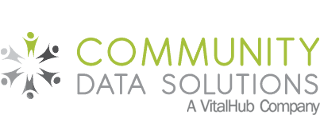
How important is data ownership to your organisation?
Traditionally in the community services sector, organisations have been funded to deliver services and in return required to complete Government reports, essentially self-reporting on the work they have conducted against a contract of work. Quite often in the past this reporting has been paper based, completing qualitative and quantitative fields for the relevant Government Department.
In the last ten years we have been transitioning to a more electronic reporting environment and it is now a growing trend of Government, which shows no sign of abating. As a result electronic reporting may require your organisation to do one of two things, either (1) develop your own Client Relationship Management (or CRM) electronic data system, or (2) accept an invitation to Government hosted data portals for programs they are funding you to deliver. These portals are becoming more common and there is usually the option of using your own CRM and uploading data, or putting the data in directly through the portal manually.
What is often missed by organisations choosing to put the data in manually is the question of data ownership. The contract of delivering of services between Government and the NGO, is covering services delivered to the community by the NGO and the remuneration for these services provided by Government. It will also outline a requirement to get your data into the Government data portal, if applicable. However there is rarely, if ever, a data ownership clause within the contract indicating that the NGO still owns some of this data and can have a copy of it at the during or at the end of the contract. As there is no obligation in a contractual sense, on Government in these types of arrangements to provide copies of data back to NGO’s, then the NGO is handing over the rights to their client data to Government. This situation weakens the position of the NGO in two important ways. Firstly, it means it does not have important client data on services delivered. Sometimes NGO’s will engage in dual data duplication in a second system, which may be costly and a cost that diminishes the resources of the organisation. Secondly, from a service delivery point of view integrated case management is not possible if data is not available to relevant staff as it is locked away in a Government portal. That is, any decisions about coordinating support for a client and the full history of client interventions is not available to NGO staff to help them best support the client.
The great advantage in holding your own copies of the data that your organisation collects is that in fact it becomes the capital you hold in the delivery of your services moving forward. It also helps to influence your future plans for new programs and advocate to the community and Government for additional resources to support clients in need. If you choose to use a CRM that you contract out to a software provider then this helps to keep you in control of your data as long as you make sure the data contract you have with the provider specifically states you own the data.
Maintain the ownership of all your data and stay in control of the services you deliver at the micro and macro levels.

No Comments